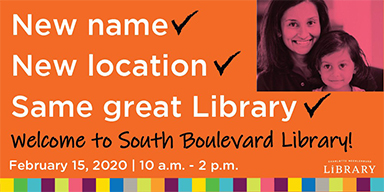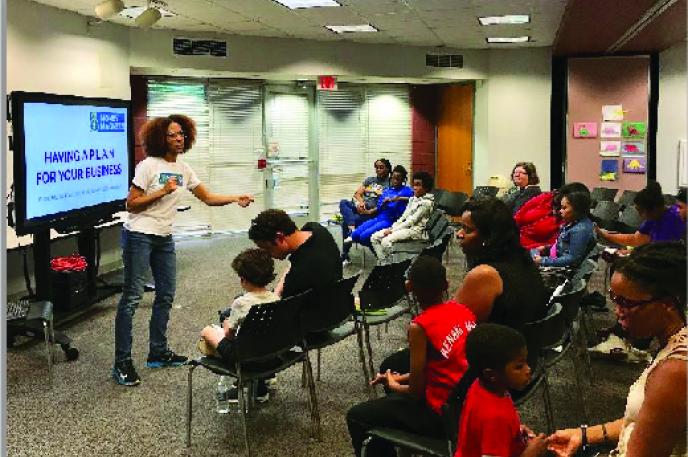What is Library Codelab?
Library Codelab is a technology series based on the concepts of accessibility, collaboration and fun. Charlotte Mecklenburg Library and community partners will offer monthly meetups for adults to explore different coding languages through projects and hands-on practice. We offer resources, motivation and access to a community of coders in a non-intimidating environment. At each meeting, we focus on a different coding language or concept and work together on a project.
The meetings are intended as an introduction to a concept, so you understand it enough to supplement the class time with self-paced learning (such as Codecademy, Udacity, Lynda.com). For example, in our JavaScript 101 class, we'll introduce you to JavaScript, use W3Schools to practice together, build a JavaScript function that produces a pop-up on a webpage, then respond to user input. We will meet monthly at different locations throughout Charlotte.
Who is Library Codelab for?
This group is meant for adults with an interest in coding or those who have tried to learn on their own but want or need more support as they learn. If you don't feel ready to attend some of the major Charlotte tech Meetups (Charlotte Devs, Code for Charlotte, Queen City Bytes, etc.) but still want to learn, this is the group for you. Our group allows you to learn from other beginners and ask all the questions. It can also be a great environment for getting a taste of different coding languages to help you decide what you might like to deep dive into. It's really meant as a first step into the world of learning to code.
Do I have to know how to code to join?
Absolutely not. You do need to have relatively good computer skills and a love for technology—but you don't have to know anything about coding before you come. At each meeting we tackle a topic as if we’ve never seen it before, but if you have, it can be great review and help you grasp a topic completely. Most members have tried to learn code on their own, or are at least familiar with HTML, but have struggled with learning it alone or aren’t sure where to go next in their coding journey. Join us at our next meetup to explore all that Library Codelab has to offer!
Upcoming events
Library Codelab: Intro to Web Concepts & Tech Careers – Beatties Ford Regional Library, Randolph Room – 2412 Beatties Ford Rd.
This introductory workshop covers the fundamentals of web development in layman terms. This is a no-code workshop. It covers basic concepts like the difference between a client and a server, the difference between backend and front end code, and the typical web development team. The course also includes a brief overview of modern web concepts including cloud/DevOps.
Other Info
The final 30 minutes of the workshop will be dedicated to a round table discussion and open Q&A about tech careers/working in the field. If you have questions around getting started, resources, languages and tools to use, this will be a great time to get them answered. The presenters of this portion of the session currently work in the field and have non-traditional (bootcamp and/or self taught) backgrounds. Their experience includes front end, full stack development, and distributed database knowledge. This class is for people with little technical experience, or those just starting to explore opportunities in the technical field.
Register here January 25, 10 a.m. to 12 p.m.
Library Codelab: Intro to Web Concepts & Tech Careers – Beatties Ford Regional Library, Community Room B
Join us at this program if you are familiar with web concepts, but would like the opportunity to have an intimate, round-table discussion specifically on careers in technology.
Other Info
ABOUT THE PRESENTERS: Cristina Veale is a Developer Advocate at DataStax, QCB Organizer, and Engagement Director of Fleurix Conference. The first meetup she ever attended was an Intro to Web Concepts course(!) which spurred her interest towards frontend development. Cristina has been developing web applications, teaching, and advocating for underrepresented groups in technology for the past five years and counting. Louise Clark is a front end developer at Duke Energy. She decided to switch careers and become a developer after more than a decade of teaching Latin American history at local universities. Louise also has three kids who think it's entirely possible she might code the next Minecraft game someday.
Register here January 28, 6:00 to 7:30 p.m.
Library Codelab: Intro to Programming with QC Bytes – Independence Regional, IB Community Room – 6000 Conference Dr.
Queen City Bytes is partnering with Charlotte Mecklenburg Library to bring you a Winter Coding series! Snacks will be provided. You are encouraged to bring your own laptop and charger. Variables? Loops? Syntax? It sounds complicated, but programming is simply providing instructions to a computer. Similar to a person following a recipe, a computer needs to be told step by step what to do in a way it can understand. In this workshop you will learn more about the basics of programming and logic. Attendees will gain exposure to creating flow charts, writing code snippets, and a general approach for building a program.
Other Info
This workshop is designed for those completely new to programming. A laptop is recommended, however the library will be able to provide one if needed. All resources will be shared via the library's mailing list and on www.meetup.com/qc-bytes.
Register here February 1, 1:00 p.m. to 3:30 p.m.
Library Codelab: Intro to Programming/Open Lab – Plaza Midwood Library, Community Room, – 1623 Central Avenue
Curious about learning to code, but don't know where to start? Join us for this introductory class focused on how the web works, programming logic and and intro to common programming languages. No computer is needed for this class. Beginners are welcome.
Register here February 5, 6:00 p.m. to 7:30 p.m.
Want to learn more?
Join our email list here or find us on Meetup here.
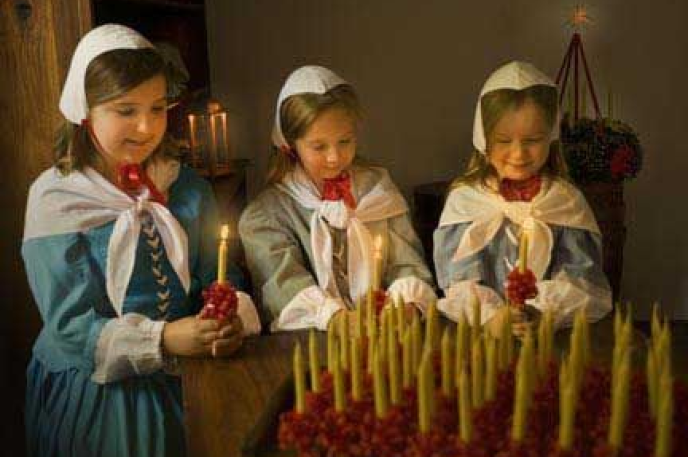
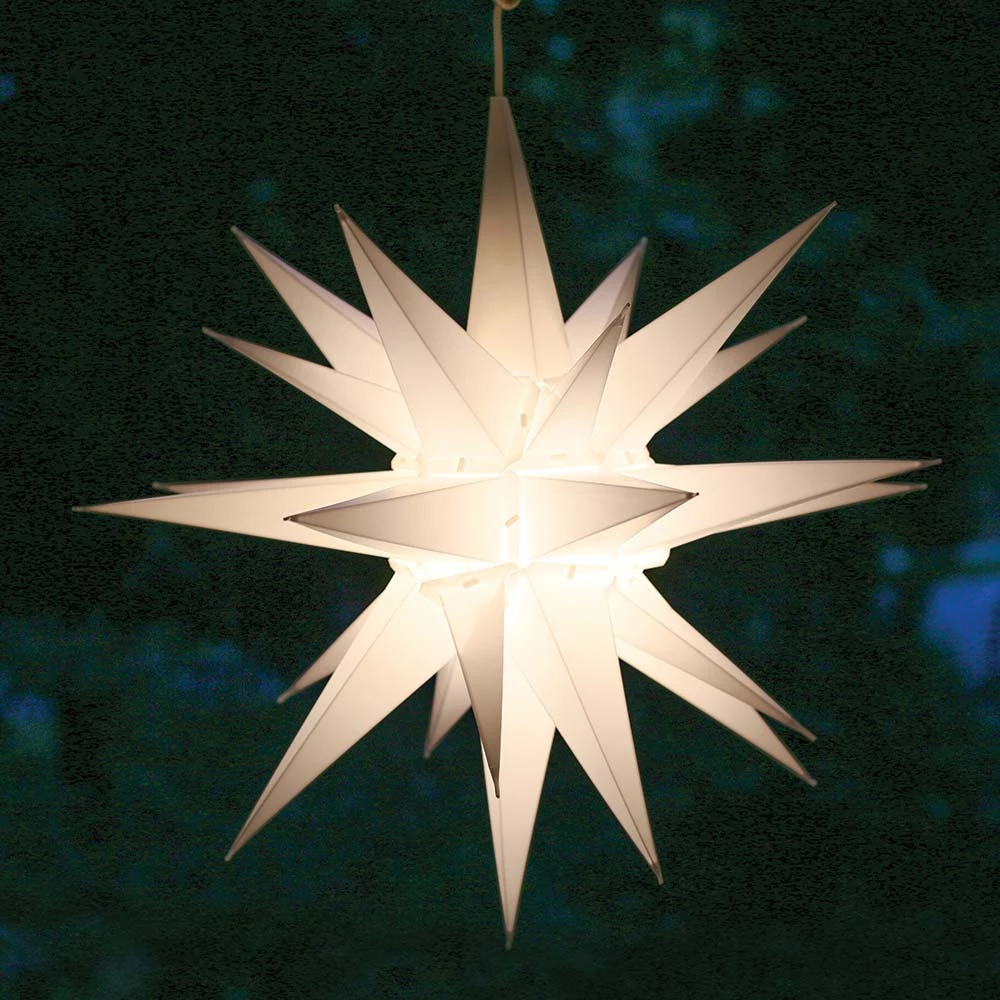 t all ends with the eating of sweet buns served with milky coffee or tea.
t all ends with the eating of sweet buns served with milky coffee or tea. 
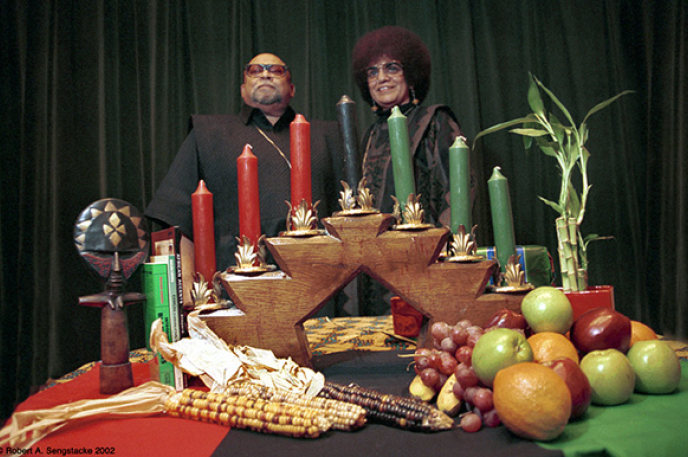
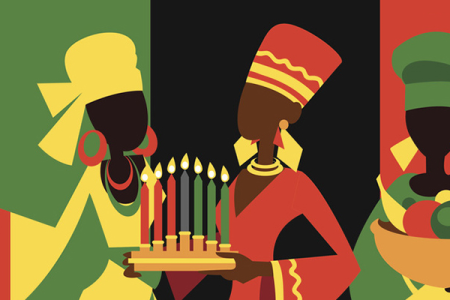
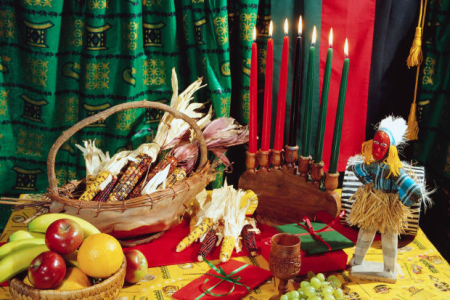

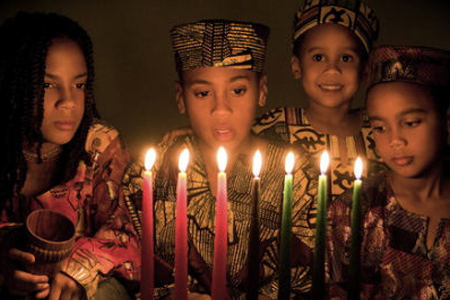
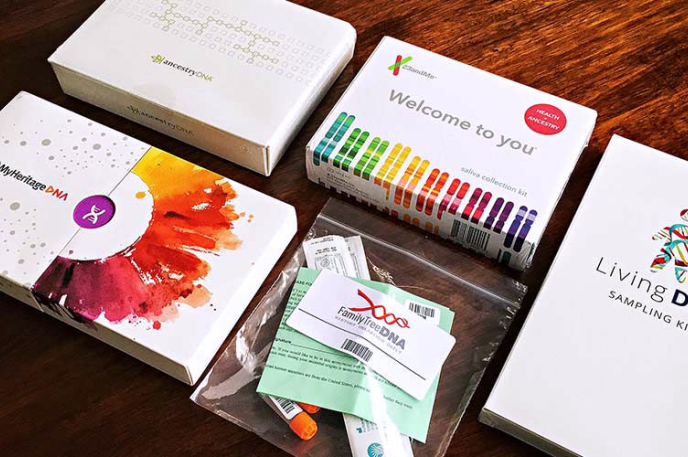
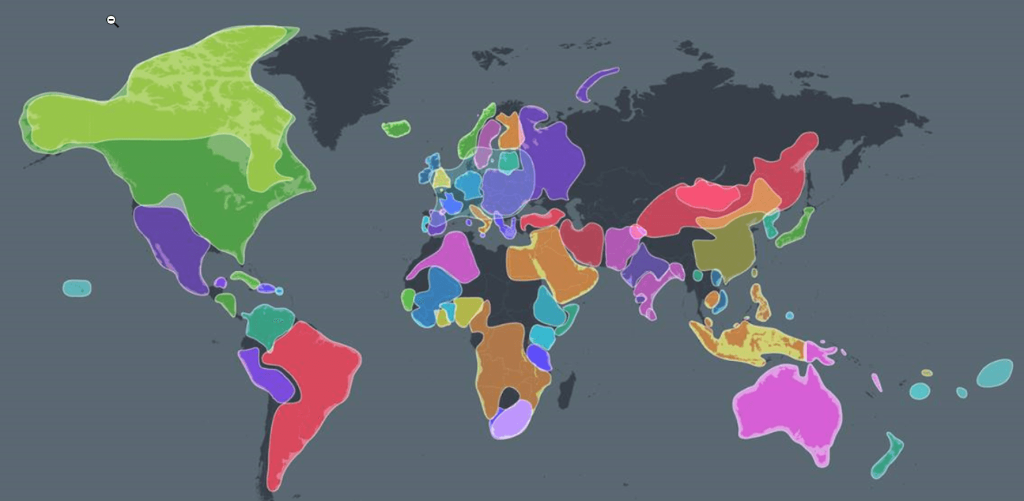
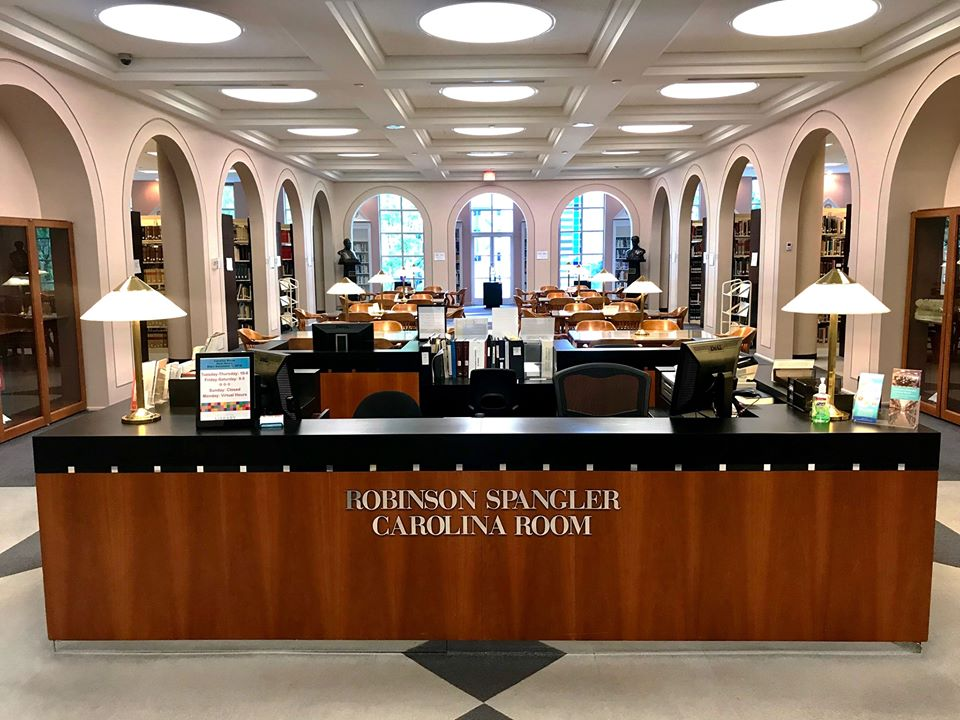

 The earliest recorded new year’s celebration occurred in March (on the Gregorian calendar) about 4,000 years ago in Babylon, in an ancient Mesopotamian city located in what is present-day Iraq. Babylonians observed Akitu (derived from the Sumerian word for barley) to celebrate the new year with an 11-day religious festival. This festival allowed them to practice rituals, elect a new ruler or approve the continuation of the current ruler and celebrate the victory of the sky god, Marduk, over the sea goddess, Tiamat. (Right photo: Chinese New Year Mongkol Chuewong/Getty)
The earliest recorded new year’s celebration occurred in March (on the Gregorian calendar) about 4,000 years ago in Babylon, in an ancient Mesopotamian city located in what is present-day Iraq. Babylonians observed Akitu (derived from the Sumerian word for barley) to celebrate the new year with an 11-day religious festival. This festival allowed them to practice rituals, elect a new ruler or approve the continuation of the current ruler and celebrate the victory of the sky god, Marduk, over the sea goddess, Tiamat. (Right photo: Chinese New Year Mongkol Chuewong/Getty)  Today, the world continues to celebrate the new year in a variety of festive (and delicious) ways. In Spain, a dozen grapes are hung right before midnight to symbolize hope in the months ahead. Financial success is symbolized by eating legumes and lentils in Italy and black-eyed peas in the southern United States. In Cuba, Austria and Hungary, pork is eaten to represent progress and prosperity. Ring-shaped cakes and pastries are eaten in the Netherlands, Mexico and Greece to show how the year has come full circle. Good luck and fortune are represented in Sweden and Norway by a hidden nut in rice pudding. (Left photo: NYE Copenhagen, dailyscandinavian.com)
Today, the world continues to celebrate the new year in a variety of festive (and delicious) ways. In Spain, a dozen grapes are hung right before midnight to symbolize hope in the months ahead. Financial success is symbolized by eating legumes and lentils in Italy and black-eyed peas in the southern United States. In Cuba, Austria and Hungary, pork is eaten to represent progress and prosperity. Ring-shaped cakes and pastries are eaten in the Netherlands, Mexico and Greece to show how the year has come full circle. Good luck and fortune are represented in Sweden and Norway by a hidden nut in rice pudding. (Left photo: NYE Copenhagen, dailyscandinavian.com)
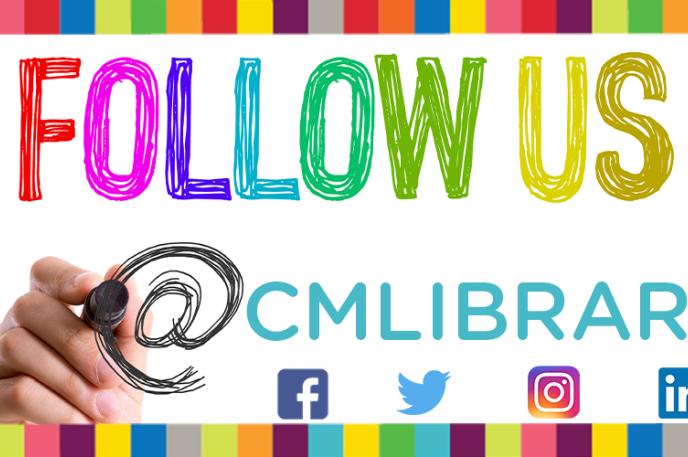
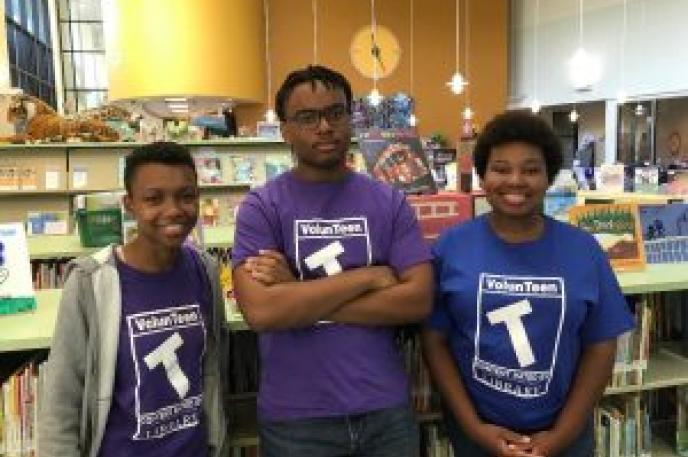
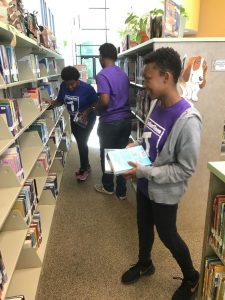 assisted with our Summer Reading Kickoff at the beginning of summer. Each intern operated a STEAM station and helped the Children’s Department with various projects such as, prepping Summer Reading materials, Summer Reading registration, book displays, and programs. They maintained weekly shelf-reading assignments which included pulling duplicate copies from our fiction and nonfiction collection as well as processed Book Sale items, and they have assisted the Circulation Department by pulling morning holds and processing daily delivery.
assisted with our Summer Reading Kickoff at the beginning of summer. Each intern operated a STEAM station and helped the Children’s Department with various projects such as, prepping Summer Reading materials, Summer Reading registration, book displays, and programs. They maintained weekly shelf-reading assignments which included pulling duplicate copies from our fiction and nonfiction collection as well as processed Book Sale items, and they have assisted the Circulation Department by pulling morning holds and processing daily delivery. 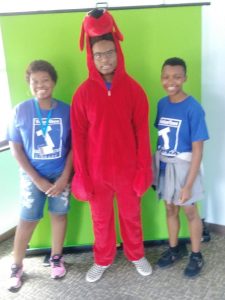 d that volunteering “gave her an excuse to read”. She never put books on hold before this summer, and now has a large stack. She also discovered ebooks and audiobooks and sometimes requests them at the same time!
d that volunteering “gave her an excuse to read”. She never put books on hold before this summer, and now has a large stack. She also discovered ebooks and audiobooks and sometimes requests them at the same time!


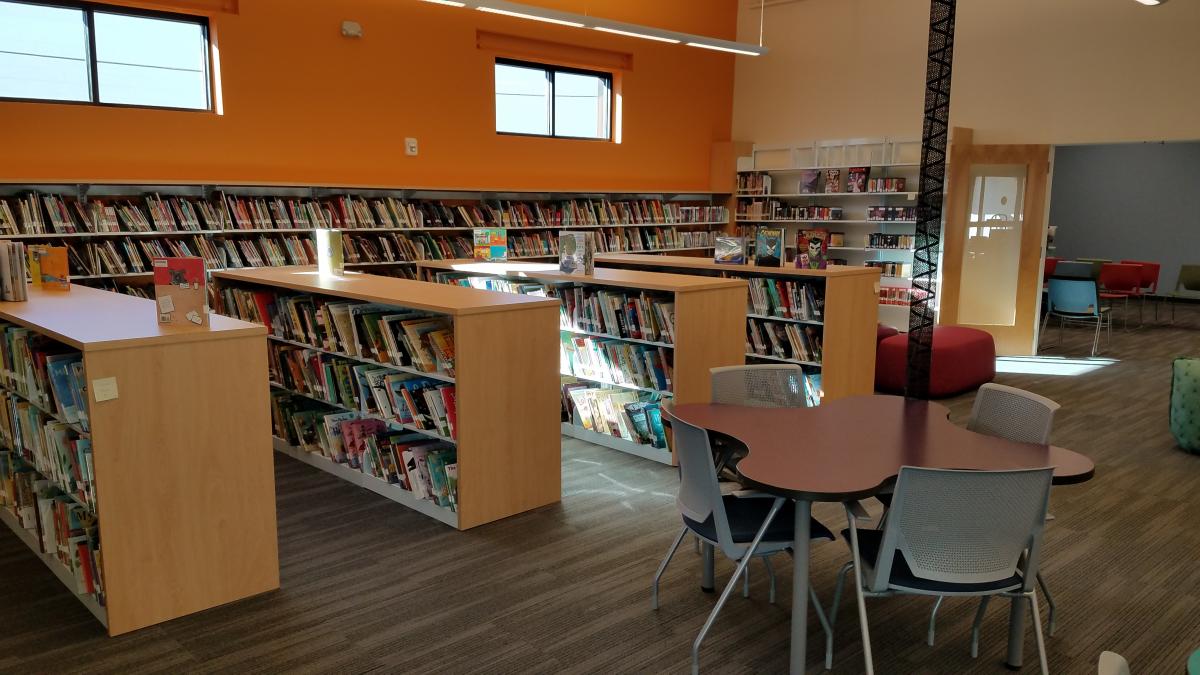 nded community room, a dedicated children’s program room, a quiet reading room, a calming room, five group study rooms, a laptop bar for customers who want to bring their own devices, many collaborative spaces and a vending café that is stocked/equipped with snack and drink machines for customers to enjoy at their leisure.
nded community room, a dedicated children’s program room, a quiet reading room, a calming room, five group study rooms, a laptop bar for customers who want to bring their own devices, many collaborative spaces and a vending café that is stocked/equipped with snack and drink machines for customers to enjoy at their leisure.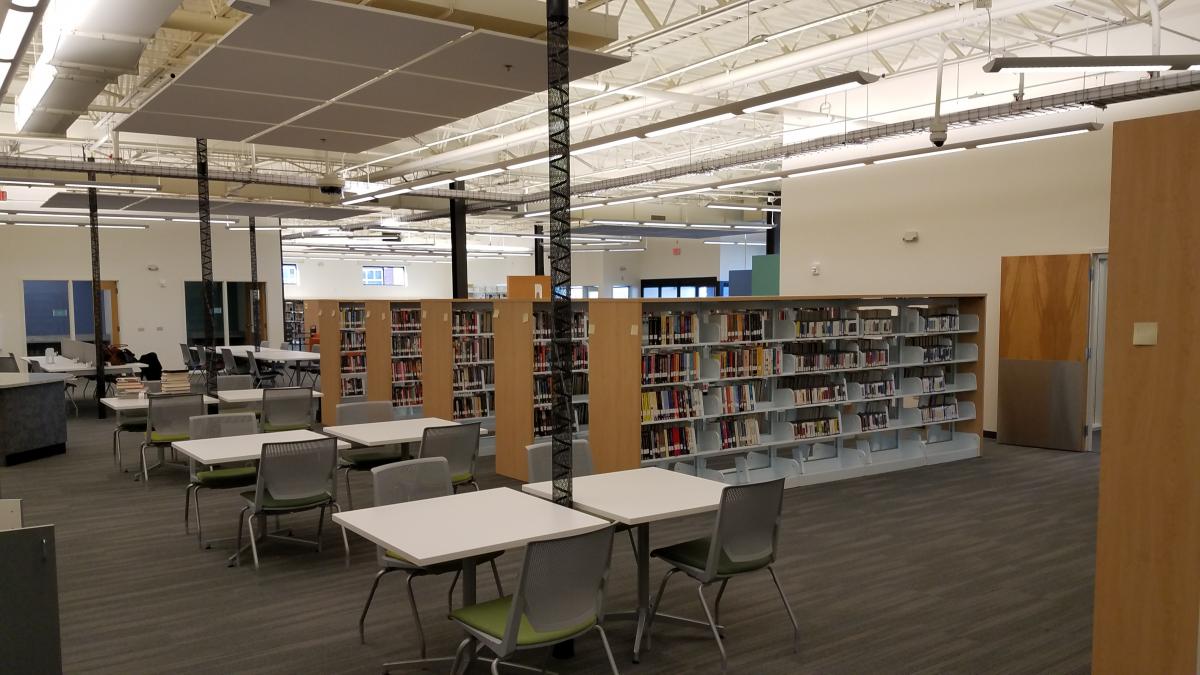 The new South Boulevard was designed with accessibility in mind. There are two entrances to the branch, one in the front (facing South Boulevard) and one in the back of the building, along with ample parking on both sides. It’s also just a 0.6-mile walk (about 12 minutes) from the Lynx Blue Line’s Scaleybark Station.
The new South Boulevard was designed with accessibility in mind. There are two entrances to the branch, one in the front (facing South Boulevard) and one in the back of the building, along with ample parking on both sides. It’s also just a 0.6-mile walk (about 12 minutes) from the Lynx Blue Line’s Scaleybark Station.